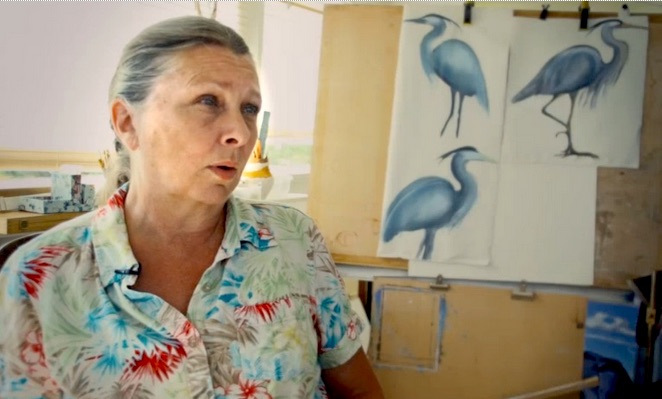|
"It just ticks so many boxes, from production on the farm, through processing, to performance advantages in the building. It’s hard not to like it! It sequesters 1.7kg of carbon for every 1kg used, it is a nitrogen fixer in soil, . . . (more)
Washington Gov. Jay Inslee has vetoed a measure that would have started up hemp growing in the state. From HempToday.
Highland Hemp House (HHH) founder Pamela Bosch will speak on “Deep Green Building” during a Sustainability Crash Course at New York’s Pratt Institute next month. Bellingham, WA-based HHH does a range of hemp advocacy work at the state and federal levels, and is leading a pilot project using hemp as a retrofit solution for a traditional wood-frame home.
The April 2 short course, a part of Green Week at Pratt, gathers leading thinkers and practitioners in sustainability who join with Pratt faculty in a series of lectures and presentations. The annual event is organized by Pratt’s Center for Sustainable Design Studies, an education and research program. (From HempToday) By Pamela Bosch
Hippies with stoned ideas and a delusional idealism. That’s the most common image of hemp advocates and practitioners among conservative rural Americans. And while us old hippies may indeed have something of an emotional attachment to cannabis, we’ve been right all along about its medicinal value. And then, of course, there’s the money: the tax money, the private fortunes now being made from good ol’ puff. But can we get beyond that? To the immense potential of the physical plant itself? Organizations such as Vote Hemp, which have been educating the public about the history of cannabis in the USA, tell of the public campaigns that vilified marijuana as a dangerous drug that threatened the social order. Cannabis scholars have known for years of the industrialists behind the propaganda of the day who didn’t want their own industries threatened by the hemp plant: Hearst, Dupont . . . the usual suspects. Today, as we are more aware of the ways that multinational corporations control manufacturing and commerce -- at the expense of the middle and working classes, as well as the environment -- hemp is a symbol of the common man’s struggle for economic and personal independence. (The hippy dream rears its ugly head again). With the top heavy conglomeration of the world’s wealth being largely supported by petrochemical, pharmaceutical, insurance, and banking institutions, hemp is a natural contrast. It offers a source of above ground energy, ways to manufacture and build without toxicity; it offers nutrition, medicine and a wide range of consumer goods such as clothing, and health and beauty products. This prolific plant in the hands of the masses could set the foundation for transition toward strong local economies, reduced energy consumption, more organic agriculture, inexpensive medicine, and on and on. Just as marijuana was an emblem of sticking it to the man amid anti-war, pro-civil rights movements of the 60’s, the hemp plant represents a hopeful offering of a material revolution. (The hippy bows). With the will and the right material in our hands, we can build a sustainable alternative to a world dominated by the money and power of a few controlling interests. We can re-invent healthy bioenergetics systems of mutual interdependence instead of being dependent on the dominating global conglomerates whose solutions have failed us all. (Enter the hippy again.) One has to have a good degree of optimism that those working to rebuild the American hemp industry believe it’s possible to challenge the status quo. We must have legislators who aren’t bought by Monsanto and the like. We need manufacturers who are willing to look abroad toward new research to fill in the knowledge gap created when the U.S. hemp industry was systematically destroyed during the last century. We can do this with farmers and entrepreneurs who are willing to try new things. If not, we’ll lose our manufacturing base to China while at the same time letting a few multinationals manage the world’s commerce. That means continued environmental degradation, job loss and a general impoverishment of the middle class. We need all those old hippies getting rich off legalized weed to return to their former dreams for marijuana’s cousin. We need them to put their money and their energy where those old dreams lie, and to bring them alive. Honorable Governor Inslee,
You have before you a bill passed by the Washington Legislature to permit the growing of Industrial Hemp in this state. While many Washington citizens have been awaiting the legal authority to grow hemp that won’t get you high, we are not entirely pleased with this law. It is a start, but it is far from beneficial to the majority of the economic and health interests this legalization could permit. This is the testimony I delivered before the house committee before SB6206 was voted on: I am going to build my house out of hemp. I have spent the last 2 ½ years studying hemp and hemp building because I believe it is the most sensible building material that can be imagined. Part of my research took me to Europe where I saw chicken farms and heard that chickens fed on hemp seed produced the most nutritious and best tasting eggs imaginable. It makes sense since hemp seeds have the perfect balance of Omega 3 & 6 Fatty acids for the human body. My research led me to a processing plant in the Netherlands where I learned that local cows that were fed 80 mg a day of the flower tops—the famous CBD rich flowers that are also sold to a burgeoning American health market. This is a market that the Canadians are missing out on because their laws reinforce an illogical fear of the green parts of the Cannabis plant. My research took me to the Farm Bureau where farmers are curious about using hemp to control erosion and create barriers between berries and streams in Whatcom County. And I have talked to countless organic farmers and gardeners who are interested in hemp because it crowds out weeds and could reduce or eliminate the need for herbicides. Its vigorous growth also makes it valuable in rotation for cleaning toxins and conditioning soil. The law that is in front of you (that has not passed) does not allow any of these beneficial uses of industrial hemp any time soon, if ever. It gives the future of industrial hemp to a few academics and agribusiness interests under the guise that it could be a public health hazard and needs to be controlled. The opposite is true. Contract farming can take care of itself. Farmers who want pedigreed seeds with verified nutritional content will buy those seeds. Legal marijuana growers, with strict control of their growth environments and expensive operations, know how to keep pollen away from their female plants. But there is no reason to withhold seed or seed saving from the pioneering public who, left alone, will make very good use of this naturally generous plant. In a state with legal marijuana, it makes no sense that we need background checks on farmers and researchers or GPS coordinates for test plots. These draconian rules were the result of agribusiness lobbies who want to profit by confining American farmers and gardeners to buying their seeds. Governor Inslee, please do what you can to advise WSU and the Department of Agriculture, to whom the future of Industrial Hemp farming in Washington State has been handed with this law, to be responsive to public input, public health, economic diversity, entrepreneurship, and to representing all the people of this state, not just the narrow corporate economic interests. The Legislature has passed a bill that would allow licensed growers to produce industrial hemp in Washington as part of a research program. Senate Bill 6206 cleared the House on a unanimous vote Tuesday after passing the Senate last month. It now heads to the desk of Gov. Jay Inslee. (more)
Oregon and Washington state lawmakers are making another try at introducing a new crop to the Northwest: Industrial hemp, the non-drug cousin of marijuana. For the fourth year in a row, the Washington Legislature is considering whether to legalize hemp farming. The initial, lopsided votes in favor suggest this might the session it happens. (full story)(read the bill)
The Oregon Department of Agriculture expects to resume issuing licenses to grow industrial hemp in 2016 by the end of February, but some problems continue to dog the new crop. (more)
HT: Give us a general update on progress with hemp in Washington.
Pamela Bosch: In Washington we have legal marijuana but no state law that addresses industrial hemp, which is still subject to the limitations of the federal government’s Controlled Substances Act of 1971. Our research universities have been instructed not to plant hemp . . . . (more) |



 RSS Feed
RSS Feed
